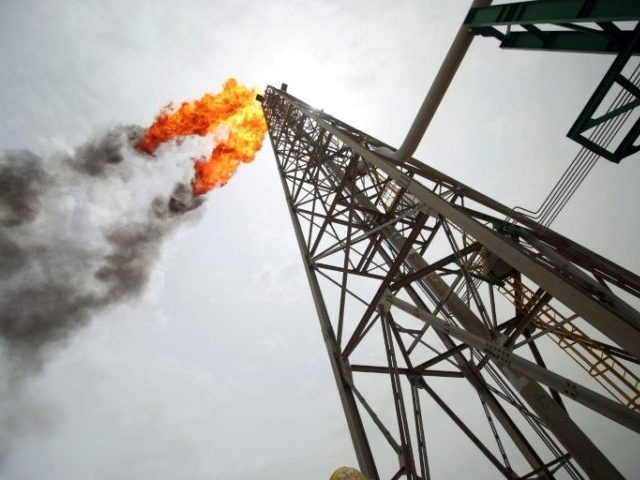The Wall Street Journal reported on Wednesday, citing an unnamed source in the Trump administration, that the United States would issue sanctions on countries that fail to cut oil imports from Iran by November 4th.
The move may be the current administration’s latest push – in the wake of America’s withdrawal from the Joint Comprehensive Plan of Action (JCPOA), or Iran nuclear deal, last month – to place pressure on Tehran’s regime, the subject of ongoing protests by Iranians demanding change and true democracy.
“We view this as one of our top national security priorities,” a senior State Department official reportedly told the Wall Street Journal.
“We will certainly be requesting that their oil imports go to zero without question by Nov. 4th,” the official added of other countries that purchase oil from Iran.
Two weeks ago, Andrew Peek, the deputy assistant secretary of State for Iran and Iraq, reportedly said the United States was prepared to issue waivers if countries made major reductions in Iran oil imports and noted that the reductions would “probably vary from country to country.” However, the Wall Street Journal reported a different stance on Wednesday. The senior official speaking to that newspaper said Washington would not consider waivers.
The Iranian oil sanctions will also affect China and India, two of Iran’s biggest crude oil buyers.
India’s the Hindu reported that “Iran is India’s third-largest oil supplier after Iraq and Saudi Arabia, with Tehran having supplied 18.4 million tonnes of crude oil in the first 10 months of 2017-18 fiscal” year.
Iran has turned to China to help save what is left of the JCPOA in the aftermath of America’s withdrawal from it. China is Iran’s top trading partner and is seeking to expand its political influence in the country and the overall region.
Some European countries are still reportedly looking for ways to trade with Iran in ways that would prevent them from facing sanctions.
Iran has braced for the reimposition of sanctions on its country by the United States, following America’s withdrawal from the JCPOA, by banning imports of over 1,300 products including home appliances, textile products, footwear, leather products, furniture, and healthcare products. The government argued that these goods could, instead, be produced in Iran.
On Monday, Iran’s currency sank to a record low of 90,000 rials against the U.S. dollar. At the tail end of 2017, it reportedly stood at 42,890.
Iranians have taken to the streets of Tehran’s Grand Bazaar, seen as a center of commerce, for a fourth consecutive day of protests to rail against the mullahs, the regime, and the nation’s deepening economic woes which have intensified as a result of the regime’s decision to invest on foreign adventurism in countries like Syria, instead of on their fellow countrymen, women and children.
Chants of “We don’t want the dollar to be at 100,000 rials” and “Strike!” were reportedly heard throughout the bazaar where merchants were forced to close their shops for several days.
Inflation and rising costs have left millions of Iranians struggling to provide the basic necessities for themselves and their families, including food. With over 40 percent of the Islamic Republic’s population suffering from unemployment, the calls for economic stability are likely to intensify over the coming weeks and months.
Adelle Nazarian is a politics and national security reporter for Breitbart News. Follow her on Facebook and Twitter.

COMMENTS
Please let us know if you're having issues with commenting.